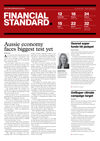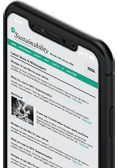Future Super measures environmental impact of portfolioBY RACHEL ALEMBAKIS | FRIDAY, 26 JUN 2020 10:10AMFuture Super has released its second impact report, measuring the fund's environmental impact both in terms of fossil fuel investments avoided and renewable energy that investments have generated. |
Editor's Choice
Green Moves: ACSI, PRI, HOPE Housing
PRI chief executive steps down, while ACSI strengthens its ESG team with a Greenfluence founder and HOPE Housing hires a director to raise capital.
Industry fund dumps sustainable option
Prime Super will remove the SRI Balanced option from its investments lineup, citing its poor performance.
Proposals against ESG, DEI to increase: Proxy advisor
Shareholder engagement is likely to change this year, ISS-Corporate says.
Australians reject net zero targets, polling claims
New polling suggests Australians are still not convinced a move to net zero is in their best interests, much preferring the government focus on affordability and reliability.



















"According to recent research from Rainmaker Information ... if a superannuation fund member invested in general balanced or growth super fund options they would have been 1.5% better off over the 12-months to end March if they chose ESG balanced or growth options."
Is there a link to the research? Does this apply to Future Super's options or to some general ESG classification of investment components and therefore also to other super funds that offer ethical and sustainable social impact investment?
Hi Professor Davos,
The research is derived from Rainmaker Information, the parent company to this publication. It refers to a general balanced or growth super fund option compared to a general ESG balanced or growth option (not just Future Super).